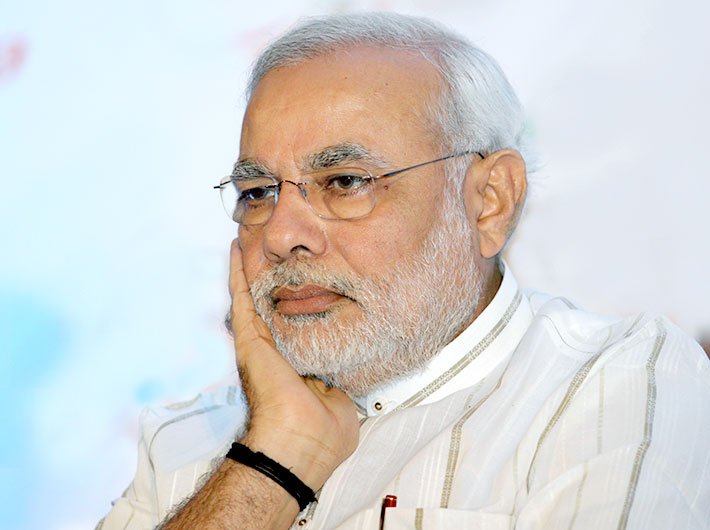Remember the promo for the last season of ‘Kaun Banega Crorepati’? A young woman from the northeast, delivering the punch line: ‘jaante sab hain ki Kohima India mein hai, maante kitne hain?’ (Everyone knows Kohima is in India, but how many are willing to accept it?)
Now, consider this: the Armed Forces Special Powers’ Act (AFSPA) has been extended to all Arunachal districts bordering Assam. Denying assertions to the contrary by union minister of state for home affairs Kiren Rijiju, the Arunachal Pradesh home minister Tanga Byaling has insisted that the state was not consulted before this step, neither were pertinent intelligence reports shared. He also pointed out that Arunachal has been the most peaceful state in the northeast with no history of home-grown insurgency. The state cabinet in its meeting on April 14 decided to request the centre to repeal the extension of the Act immediately.
Do policymakers, commentators and citizens in the so-called mainland realise how Acts like AFSPA unfold on the ground? How do they affect the lives of our fellow Indians? Such harsh measures can arguably be described as ‘evil yet necessary’ in the interests of ‘national security’. Honestly and logically speaking, national security is reason enough to be extremely cautious while bringing any area under AFSPA, which by its very nature and in actual application is bound to alienate people from the Indian state.
It is sad but not surprising that the mainstream media has hardly taken any notice of this development. After all, everyone knows the northeast is part of India, but how many really feel so? Why bother if another obscure name in that remote region is brought under ever more repressive instruments of state machinery? It suffices to glibly pay homage to ‘unity in diversity’ and vociferously condemn the treachery of ‘those ungrateful fellows’ in the most likely event of their alienation from not only the Indian state but also from the very idea of India. The extension of AFSPA to Arunachal is fraught with disconcerting possibilities.
Not only in Arunachal, but in other places as well, the Modi government seems to be losing the plot in less than a year. Look at Kashmir: in such a short period of time, the BJP-PDP government has plunged the state once again into uncertainty and confusion. Handling delicate situations is quite different from glib talk and populist speeches.
Derailing Kashmir and sowing the seeds of trouble in Arunachal should not be seen in isolation from the general drift which the Modi government has managed to bring to the affairs of state. It started with the promise of ‘less government, more governance’, however, things have come to such a pass that the globe-trotting PM’s office is sitting upon close to 6,000 pending files. Incidentally, the number of files pending within the PMO never went beyond 1,500 (which was bad enough) during Manmohan Singh’s regime. Modi’s insistence on pushing radical changes in the land acquisition law (supported by the BJP when it was passed in 2013) through ordinances are also indicative of his style along with the skewed priorities of the government. Insisting aggressively on changes which are seen as adverse to the interests of almost half the population, how can Modi and the BJP expect to be seen as pro-people?
And yet the PM wants everybody to believe that his government is staunchly pro-poor. But he also seems cornered and worried. The PM was visibly upset while recently speaking to his party MPs in what the media described as a ‘Modi class’. Modi was understandably asking his party MPs to go out to the people and tell them that the government is not anti-poor. He also praised Gen VK Singh for the ‘splendid job’ done in Yemen. In the anxious strategy of taking everybody on board, even the permanently marginalised minister for external affairs (you know who!) also got a positive mention.
The PM has carefully created the image of a cool, clear-headed man. He has always been seen very relaxed while addressing any gathering. Even his biting sarcasms and loaded references like ‘Biryani’ and ‘Shahjada’ were delivered with gusto and without bothering about the possibility of such expressions coming back to haunt him. He hardly ever fumbles; it is a different matter that in his supreme self-confidence, he also sometimes takes liberties with facts of history and contemporary life. Even in the latest ‘Modi class’, he claimed to have brought down the price of a bag of cement to '120. But the fact remains that overall; Modi is seen as a speaker full of confidence.
And that is why it was quite interesting to watch Modi gesticulating angrily and searching for words and expressions to articulate his irritation and frustration while addressing his party MPs, right before the second half of the budget session of parliament began. His body language showed signs of having taken deep note of the charges of being anti-poor and unabashedly pro-super rich. If my memory serves me right, it was for the first time that Modi mentioned Mukesh Ambani by name while delivering a political speech. His point was that the charges of his government being anti-poor and pro-super rich are preposterous and his way of making the point was, “when my government declares housing schemes for the poor, is it for the benefit of Mukesh Ambani?”
Clearly, the ‘charge’ or the perception of him being too close to Ambani and/or Adani seems to have made some impact on the PM himself. His way of conducting the ‘class’ for his party MPs carried the unmistakable signs of a leader having made tall promises, but having achieved little to really show, feeling cornered, his and his party’s bravado notwithstanding.
Now, the hope for the BJP lies in again paraphrasing the current scenario as summed up in the choice being between Modi and Rahul. Many Congressmen and women are quite conscious of the disconcerting potential of things being presented this way to the people, but seem to be helpless in the #RahulReturns moment.
This and other such binaries apart, let us look at the deeper significance of events unfolding from Itanagar to Srinagar; from farmers’ suicides in Maharashtra, Uttar Pradesh and Rajasthan to the farmers rally and the ‘Modi class’ in Delhi.
As pointed out in this column last month, being a welfare state does not imply being hostile to business and enterprise, but it certainly implies being committed to the empowerment of citizens. As opposed to the welfare state, there is the idea of a client state. Historically, demagogues of various hues come to power by invoking religious, cultural, even civil sentiments (for example, corruption in public life) with the help of the super-rich of society and seek to create a state dedicated to unbridled money-making on part of a tiny minority. In doing so, they have to perforce bypass the institutions and norms of democratic governance, and create panic and thus take recourse to the politics of emotions and sentiments.
The disenchantment with the Modi government has been deepening for some time. The importance of Modi looking visibly upset and mentioning Mukesh Ambani by name lies in being indicative of the government feeling cornered. His government indeed is in a hurry to deliver. The question, however is: deliver what and to whom?
The answer to this question is likely to unfold in ways indicted by history and yet unexpected for those who voted Modi to power with great expectations.
(The article appears in the May 1-15, 2015 issue)

